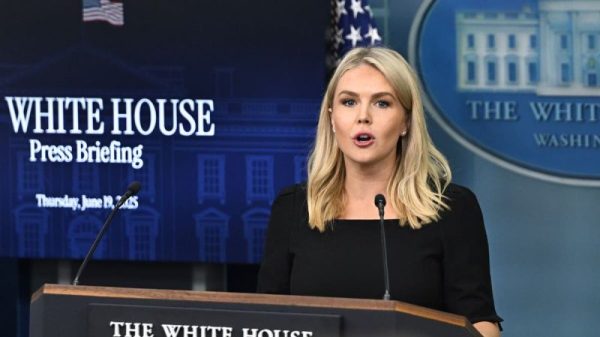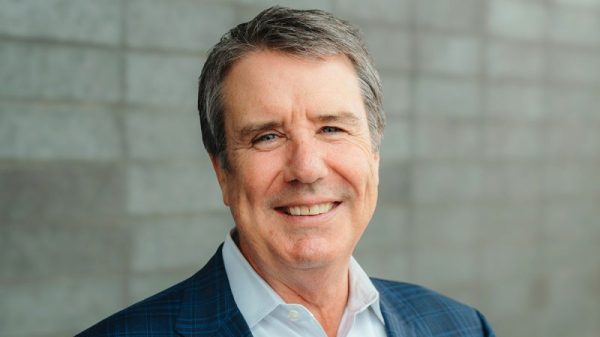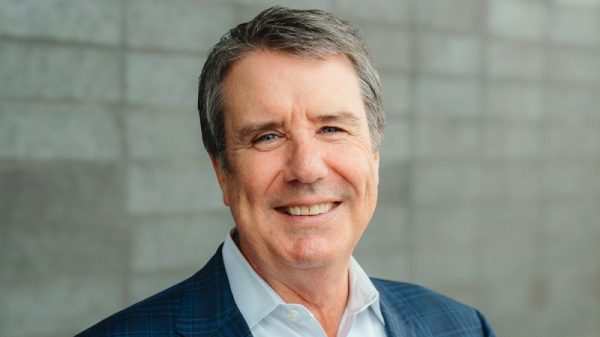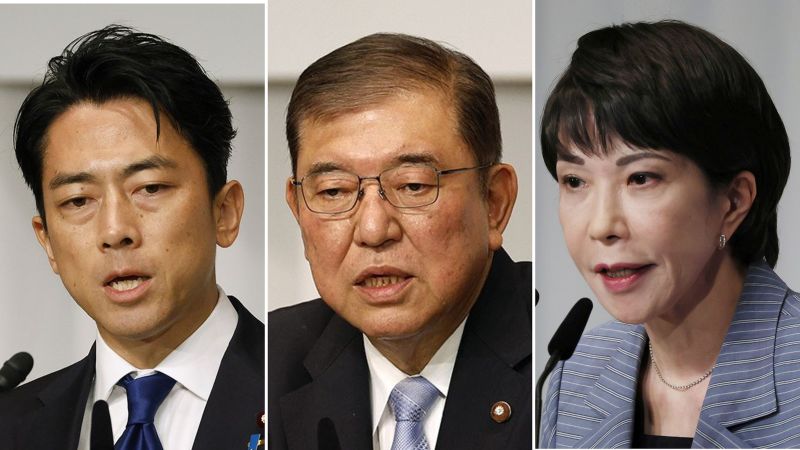Japan’s ruling party will elect its new leader Friday, and the winner will become the country’s next prime minister.
Out of a record nine candidates, three frontrunners are fighting a very close race that will likely end in a runoff vote.
The winner will take the helm of the world’s fourth-largest economy at a time of rising living costs, exacerbated by the weak yen and high inflation, as Japan faces growing security challenges in the region and friction with neighbors including China.
Among the favorites vying to lead the long-ruling, scandal-plagued Liberal Democratic Party (LDP) is Sanae Takaichi, the conservative economic security minister who could become the nation’s first woman prime minister; Shinjiro Koizumi, a charismatic young surfer who hails from a popular political dynasty; and former defense minister Shigeru Ishiba, who is on his fifth and final bid for the top job.
The conservative LDP has ruled Japan almost continuously since the party’s founding in 1955. Owing to its majority in the lower house, the LDP’s chosen candidate will be approved by Japan’s parliament, the Diet, when it convenes in October.
General elections are scheduled for next year, but the winning candidate could choose to call a snap election before then. Some reports suggest this could happen even before the US presidential election in November.
Prime Minister Fumio Kishida is not in the running after his surprise announcement last month that he would step down following a series of political scandals that fueled calls for him to resign.
The winner will be tasked with improving the LDP’s image ahead of those general elections.
The ruling party has in recent months been embroiled in one of Japan’s biggest political scandals in decades.
Two of the most influential factions in the LDP have been accused of failing to properly declare their income and expenditure and, in some instances, allegedly rerouting political funds to lawmakers as kickbacks.
Scandals surrounding several high-ranking officials haven’t helped, with some accused of involvement with election law violations or of offensive past comments against minorities.
Kishida had tried to contain the damage, replacing several cabinet ministers last year and abolishing his own party faction.
With the upcoming US presidential election, the new prime minister will navigate Japan’s relations with a new American leader at a time of growing security challenges in Asia, including an increasingly assertive China and a belligerent North Korea.
Partnership with Japan has long been central to US strategy in the Asia-Pacific region, and Kishida this year expanded Tokyo’s defense cooperation with its key ally.
“It’s safe to assume that Ishiba, Takaichi, and Koizumi will do quite well, but I really cannot say who out of those three will win the race,” Yu Uchiyama, a professor of politics at Tokyo University, told Reuters. “I don’t think we’ll know until the very last moment.”
The candidates
If Takaichi, 63, wins it would be a significant moment for Japan, where men continue to dominate politics and boardrooms.
But such a victory would not necessarily herald a new progressive era. The political veteran is a staunch conservative from the party’s right wing and has promised to prioritize economic growth. She has also opposed legislation that could allow married women to keep their maiden names, and has described Margaret Thatcher, the conservative late former British leader, as a role model.
She is a protégé of the late former Prime Minister Shinzo Abe and a supporter of his eponymous economic policies, and is similarly hawkish on security issues, favoring a revision of the country’s pacifist constitution.
Takaichi’s visits to Tokyo’s Yasukuni Shrine – which honors 2.4 million of Japan’s war dead, including convicted war criminals – have triggered protests from South Korea and China, victims of the country’s expansionist aggression during the first half of the 20th century.
Her plans to boost Japan’s economy include lowering interest rates, after the Bank of Japan hiked rates this year, and she has called for “strategic” fiscal spending to increase jobs and household incomes, according to Reuters.
Koizumi, 43, is the US-educated, charismatic son of popular former prime minister Junichiro Koizumi, and could be Japan’s youngest prime minister of the post-war period.
Koizumi has presented himself as a reformer – much like his father – and has promised to call a snap general election. He said he would continue the economic policies of outgoing leader Kishida.
Critics have pointed to his lack of experience in domestic politics and international relations, and an economic plan considered thin on details.
But Koizumi’s star power has made him popular with the public, especially among young voters and women.
He has supported legislation that could allow married women to keep their maiden names, and is in favor of women acceding to the imperial throne, something currently not permitted in Japan. Koizumi made headlines when he became the first cabinet member in the country to take paternity leave – only two weeks, but a significant move as Japan’s work culture means many new fathers don’t take any.
Ishiba, 67, is a veteran politician and serious about security issues. He has said Japan should reduce its dependence on nuclear energy in favor of renewables, and has called for an Asian version of the NATO security bloc to counter threats from China and North Korea.
In a political culture that prizes conformity, Ishiba has long been something of an outlier, willing to criticize and go against his own party. That willingness to speak out made him powerful enemies within the LDP but endeared him to more grassroots members and the public.
He sits on the more progressive wing of the conservative party.






































